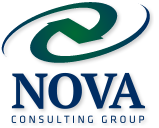Sales Performance Behaviors
Sales and marketing budgets will consume an average of 12% of company revenues, according to the Gartner 2016-2017 CMO Spend Survey. With that level of spending focused on promoting your company’s products and services, you want to ensure that your most potent customer-facing asset, your sales team, is trained and coached on the skills and activities that produce results.
Even with these resources focused on promoting your company’s products/services, many sales teams struggle to meet their goals. The problem is pervasive and does not discriminate. Poor sales performance cuts across industry boundaries and company size. For example, in a study of 111 senior sales executives from 96 worldwide organizations, the researchers discovered that “in general, the executives were underwhelmed by their sales forces’ performance.”
Another insightful study looked at how sales behaviors link to sales performance. Researchers Iain A. Davies, Ken Le Meunier-FitzHugh, and Lynette J. Ryals of the Cranfield School of Management observed the live sales calls involving 306 salespeople and their buyers. They discovered behaviors frontline salespeople used to prepare for, during, and after a sales call on a buyer. Then, they looked at the impact of each behavior on the salesperson’s performance and the outcome of their sales calls.
Research and Metrics
The researchers created and used a sales call scorecard validated by senior sales leaders that looked at five areas of performance:
- Premeeting Planning
- Behavior
- Presenting
- Listening
- Selling
The researchers measured three successful sales behaviors:
- Closing the sale
- Closing to the next stage
- Setting next steps and time scales
Their findings were astounding and pointed to the need for sales leaders to reevaluate their sales training purchase decisions.
The Results
The study revealed that:
- Closing the Sale: Only 9.1% of all sales interactions resulted in an order. In addition, the majority did not achieve their premeeting objective of the ones that did close.
- Closing to the next stage: Over 40% of the salespeople must make substantial progress in their meetings. The least demanding measure of sales success
- Setting the following steps and time scales was where most salespeople excelled. It is also the least onerous measure of sales success.
The Results: 5 Areas of Performance
Here are the rest of the results:
- Premeeting planning – Salespeople were well prepared and well-presented.
However, among the salespeople observed, they failed to set the agenda for the meeting or ensure that they were talking to a qualified buyer (Remember: Qualified Buyer = someone with the financial means and the authority to buy your product or service).
- Behavior – (Refers to how salespeople conduct the meeting with the buyer) All salespeople built rapport with the buyer and were polite and professional.
The researchers found that most salespeople could improve how they introduced themselves, their company, and their products or services.
This performance area and premeeting planning were the two areas where most salespeople excelled.
- Presenting – This was the first area where the researchers observed the inclination to use some behaviors at the expense of others.
There was little to no discussion about the issues facing the buyers or what they valued. Instead, salespeople spent a “high portion of their time demonstrating their knowledge of the marketplace, products/services, and company offerings, and explaining in depth what the company has to offer.” However, another troubling observation from the research highlighted that many salespeople failed to discuss the value proposition entirely.
- Listening – This behavior gets a lot of sales training resources. We would expect salespeople to be good listeners.
In the study, few observed salespeople scored above a 6, indicating that most salespeople are too busy talking and do not hear the buyer’s needs.
- Selling – (When the salesperson moves beyond pitching to selling the product or service)
In the observation study, most salespeople did poorly. The researchers offered two possible reasons:
1. either the salespeople “talked through” the sale (spoke too long so that the customer lost interest)
2. they were pitching to the wrong person (the customer was not interested in the offering)
They also noted that salespeople needed to improve negotiation and objection handling. Handling negotiations and objections is essential to success in selling, and these topics are where a large portion of sales training dollars go.
Takeaways
To improve performance at the buyer’s desk, consider the following:
- First, focus training and coaching resources on the sales behaviors that will enhance sales performance.
- Pay attention to the performance outcomes of your sales training.
As the study points out, areas for improvement include:
Areas of Upskilling:
-
-
- Listening more than talking.
- Interpret what the buyer is communicating.
- Identifying and matching genuine buyer needs to the company’s offerings.
- Creating solutions on the fly.
-
Where to Focus Resources
- Devoting more resources to buyer engagement skills such as listening, negotiating, seeing the value through the buyer’s eyes, handling objections on the fly, and suggesting creative solutions will produce sales success that shows up on the top line of your P&L.
- Add group coaching to your sales team development plan. Furthermore, coaching will give you 60% better performance than training alone.
This research study shows that salespeople struggle in places that seem right in their wheelhouse. The challenge is understanding what skills produce sales success and then finding the most effective way to ensure that the training knowledge shows up at the buyer’s desk. Sales training coupled with group coaching is necessary for the success of any sales team.
When you think about sales effectiveness at your organization, does it seem like you are close but just missing those unique elements that give you that competitive edge? Looking for a way to understand how your buyer thinks, decides, and reveals information? At The Nova Consulting Group, we believe that professional selling is a craft. With the Advanced Sales Conversation©, you have those missing elements that move your salespeople from competency to mastery. With our deep understanding of what makes and sustains high-performance organizations, we provide integrated solutions that do not replace your sales methodology and yet advance a progressive selling mindset. Be bolder, more insightful, and get results. To learn more about how to master the craft of sales and encourage sustainable high performance, call (617) 933-7249 or email info@novaconsultinggrp.com.
How Does Your Buyer Remember You?
Buyer, will you remember me? It is a curious thing. Most B2B buyers do not perceive sellers as different from one another. Given how much work goes into the development of products and services, [...]
Mid-Year Sales Review: Simplify and Stop Pushing
Mid-year is such a turning point for a sales team. You can notice trends, problems, and opportunities. However, those problems can be magnified when the sales team is behind in its mid-year goal. On [...]
Listening to Understand: Sales Conversations That Matter in the Digital Age
Even in the Before Time (remember those years before COVID?), buyers were moving away from salespeople and changing when and how sales conversations happened. In our first white paper, Window Into the Buyer’s Mind, [...]
Leading Resiliency: Developing Your Sales Team for 2024’s Challenges
The sales landscape is undergoing a monumental shift, creating turbulence for sales teams. High-performing sales teams show greater resiliency when ongoing development is part of the employee experience. That resiliency supports how salespeople cope, [...]
CROs, Is This Sales Conversation Myth Derailing Your Forecast?
There is this weird perspective in sales that could very well derail your forecast. There is this belief that any sales conversation is better than no conversation. This means that someone on your team [...]
10 Ways the Advanced Sales Conversation© Supports Non-Traditional Sellers
Are you a lawyer, consultant, C-level executive, architect, project manager, engineer, or freelancer? Regardless of your profession, you are likely responsible for maintaining clients and attracting new business. However, selling and persuading others may [...]








